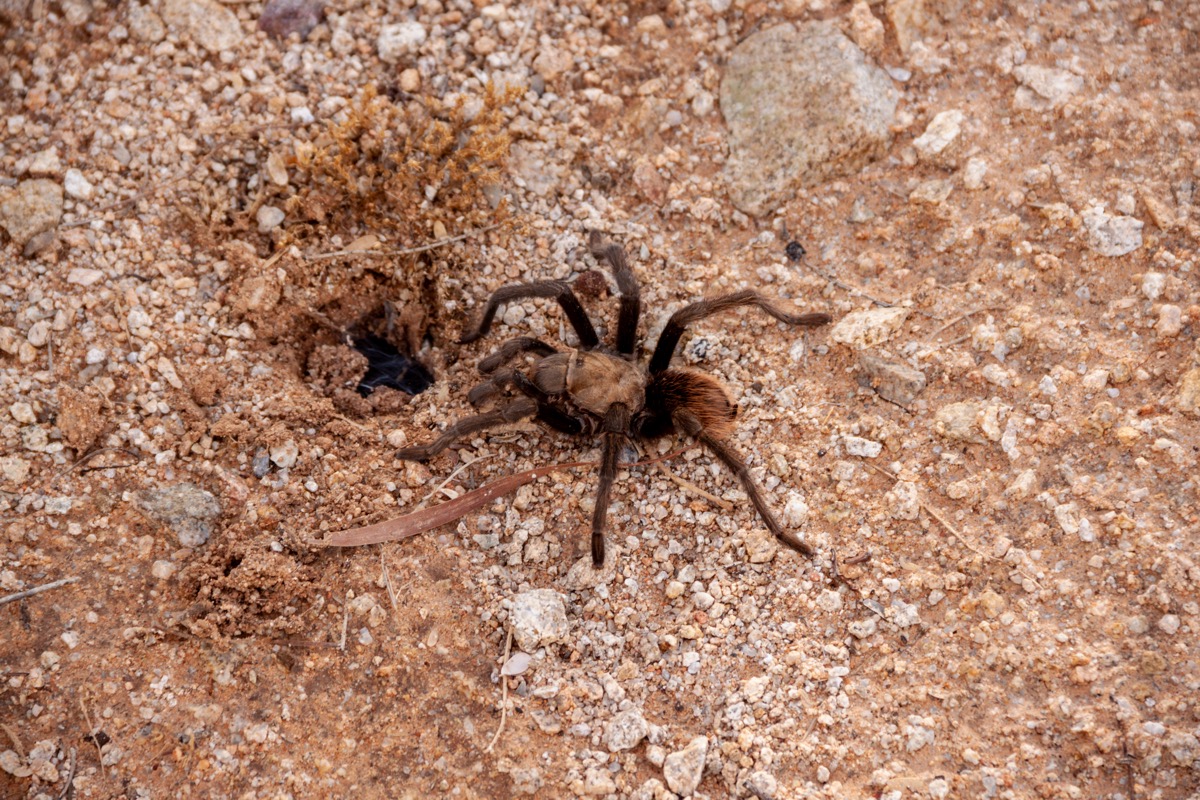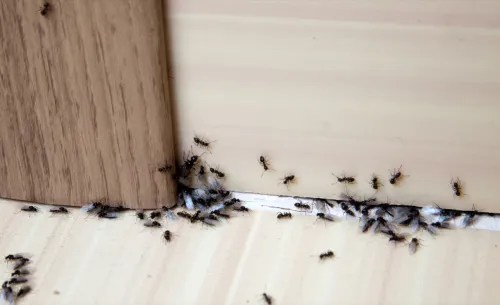The No. 1 Sign There’s a Tarantula in Your Home, Experts Warn

No one wants to see a spider in their home, let alone a large, hairy one like a tarantula. These spiders can grow up to 11 inches in size, according to Live Science, and although their venom is not usually dangerous, like that of a black widow or brown recluse, tarantulas can also bite you and do some damage. If you want to know what to look out for ahead of a tarantula sighting—or worse, biting—experts say they tend to leave behind a certain signal. Read on to find out what could be a sign that there’s a tarantula in your home.
RELATED: If You Live Here, Prepare to See Thousands of Tarantulas, Experts Say.
Tarantulas aren’t often easy to spot within your home, but they do leave a trail.

According to Nancy Troyano, PhD, a board-certified entomologist for Western Exterminator, it can be difficult for you to spot a tarantula in your home because they are burrowing spiders. “If you have seen tarantulas around your home, they are probably living underground on your property and they can be hard to find,” she says.
But unlike other spiders, tarantulas do not spin webs to trap their prey so they have to leave their burrows to hunt for food. “They do this by being sneaky, although some species of tarantula will leave a very small, thin line of spider silk trailing outside of their burrow to act a bit like a tripwire to alert them prey is there,” Troyano explains.
She adds that tarantulas typically hunt at night, so you’ll be most likely to spot them later in the evening.
If you notice ants around your home, you may see a tarantula next.

Homeowners who have an ant problem may soon spot a tarantula too, according to pest control company Orkin, who says ants are “convenient food sources” for this type of spider. Lovelia Horn, owner of Every Creature Counts, says that most spiders don’t particularly enjoy eating ants, except for tarantulas, who often mistake this common bug for other smaller spiders. Troyano adds that tarantulas also enjoy eating grasshoppers, cicadas, beetles, and caterpillars.
RELATED: And for more pest-related news sent right to your inbox, sign up for our daily newsletter.
You can take certain measures to make your house less accessible to tarantulas.

There are ways you can try to make your home less inviting for tarantulas, including maintaining your ant population and sealing up any holes in doors or other openings that may allow tarantulas to enter your home.
“Keep the yard clean and free of vegetation, old logs, abandoned lawn mowers or other debris. Tarantulas are shy and will build their burrows or find hiding spaces around those types of things,” Troyano says.
These spiders may also try to use stacks of boxes, old wood, fallen trees, or overgrown areas for their burrows, so you should “clean those up, trim back vegetation, and remove old outer buildings like sheds or old garages,” she advises.
Tarantulas are usually found in one particular region of the U.S.

Tarantulas are only typically found in one area of the U.S., however. According to Live Science, there are more than four dozen species of tarantulas across the country, but they are usually all situated in the Southern region.
“There are various types of tarantulas, but they typically all require the same type of habitat,” says Jeff Neal, a pest expert and founder of Critter Depot. “If you live in colder climates, or areas that experience colder winters, then you don’t have to worry about tarantulas. But if you’re down south, then it’s a strong possibility that you could see them.”
According to Western Exterminator, tarantulas are most likely to be found in the desert regions of states like California, Arizona, and Texas. But these spiders have “been known to wander into homes, particularly during mating season,” which is in the late summer and fall.
RELATED: If You’re Not Cleaning This, You’re Inviting Spiders to Your Home.